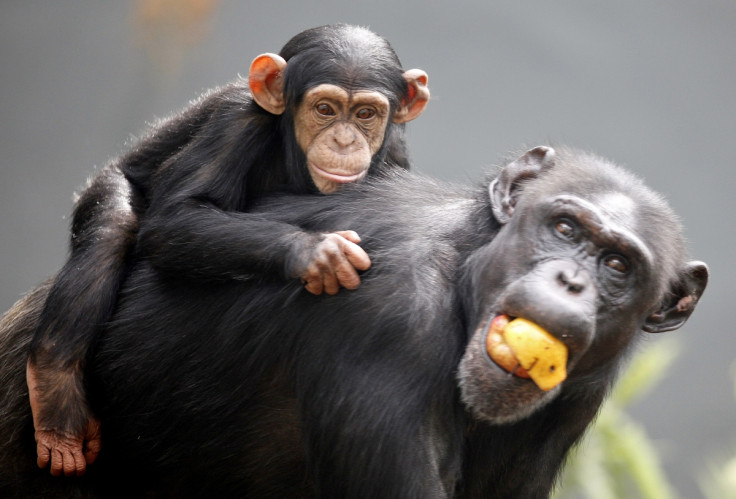Tanzania: Wild chimpanzee found caring for her infant with Down syndrome

Researchers have observed a strange behavioural relationship between a mother and an infant chimpanzee in Tanzania. The mother chimpanzee was found to be caring for her infant having congenital disabilities as humans do.
In a first of its kind study, wildlife researchers at Kyoto University in Japan have reported about the physical and behavioural development of a "severely" disabled female infant chimpanzee at Mahale Mountains National Park, which is home to bald-headed chimpanzees (Pan troglodytes schweinfurthii). The study highlights how the mother coped with the infant's disability.
The infant, who lived for 23 months, had a condition resembling Down syndrome, showing symptoms similar to a chimpanzee in captivity that had the same disorder. The researchers documented interactions between the infant and its mother and as well as with other group members. They found that the mother chimpanzee solely took care of her infant.
"The observed infant exhibited symptoms resembling Down syndrome, similar to those reported previously for a captive chimpanzee. The mother did not allow non-relatives to take care of the infant even though she had been previously relatively tolerant of allomothering by non-relatives," the researchers noted in their paper published online in the journal Primates.
However, other group members did not show any offensive or fearful reactions to the disabled infant, they said. Researchers believe that the infant could survive for as long as 23 months because of her mother's care. "The mother's compensatory care for her infant's disabilities and allomothering of the infant by its sister might have helped it to survive for 23 months in the wild."
Congenital disabilities occur in many primate species, including chimpanzees, explained the researchers, but added that "there have been only a few case studies of congenitally disabled chimpanzee infants and no reports examining how a chimpanzee mother copes with such a disabled infant in the wild".
Researchers from the Japanese university have been studying wild chimpanzees in Mahale since 1965.
© Copyright IBTimes 2025. All rights reserved.






















